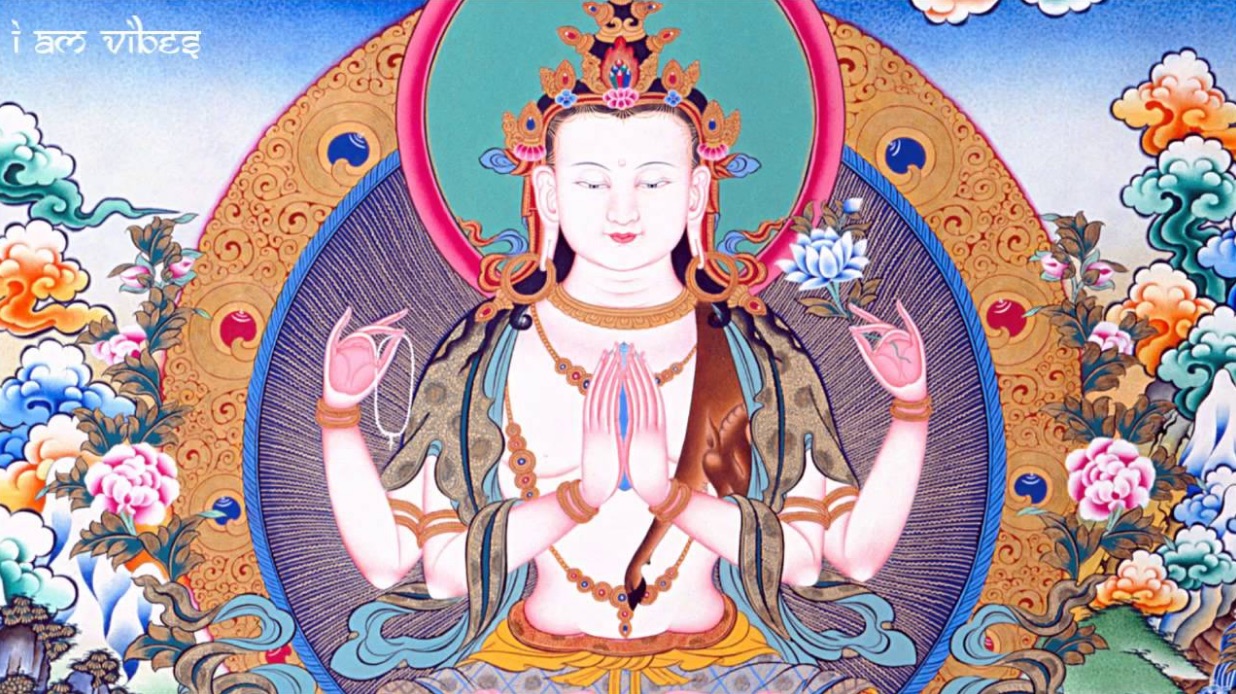For my 10-day Introduction to Buddhism course, we recited a prayer in the morning and evening with Geshe La, our teacher.
The prayer had nine verses to it, and to be honest, I had goosebumps every single time I recited it.
It was so powerful that I looked further for its source. It turned out that it was written by Shantideva (a Buddhist master from the monastic university of Nalanda, India) and composed in the eighth century of the Christian era.
That prayer was part of Shantideva’s book A Guide to the Bodhisattva’s Way of Life, which I can’t stop reading.
The book consists of verses that act as a guide to anyone walking down the spiritual path. Shantideva’s guide is thought-provoking on many levels. It sharply penetrates the mind in a way that not only leaves us startled, yet also in awe.
I am convinced that everybody needs a guide in their lives. No one can hold our hand and walk us to where we are destined to arrive; however, they can show us the way. I consider Shantideva’s verses one of the most powerful signs that lead me every single day to a better place.
His verses act as an alarm clock that awakens me from falling back into attachment, anger, impatience and misery.
It is of utmost importance to use reminders to proceed with a stable, beneficial spiritual practice.
The following verses from A Guide to the Bodhisattva’s Way of Life have guided my life and my spiritual practice:
On death:Just like a dream experience,
Whatever things I enjoy
Will become a memory.
Whatever has passed will not be seen again.Having departed to the cemeteries,
When shall I come to understand
That this body of mine and the skeletons of others
Are equal in being subject to decay?
On conscientiousness:
If, having made such a promise,
I do not put it into action,
Then by deceiving every living being,
What kind of rebirth shall I take?Although enemies such as hatred and craving
Have neither any arms nor legs,
And are neither courageous nor wise,
How have I, like a slave, been used by them?
On alertness:
People who are disturbed by sickness
Have no strength to do anything useful,
Likewise, those whose minds are disturbed by confusion
Have no strength to do anything wholesome.Whenever I am eager for praise
Or have the desire to blame others;
Whenever I have the wish to speak harshly and cause disputes;
At such times I should remain like a piece of wood.
On happiness:
Why be unhappy about something
If it can be remedied?
And what is the use of being unhappy about something
If it cannot be remedied?Whatever befalls me,
I shall not disturb my mental joy;
For having been made unhappy, I shall not accomplish what I wish,
And my virtues will decline.When both myself and others
Are similar in that we wish to be happy,
What is so special about me?
Why do I strive for my happiness alone?
On compassion:
If it were the nature of the childish
To cause harm to other beings,
It would still be incorrect to be angry with them,
For this would be like begrudging fire for having the nature to burn.Even if the enemy does suffer as you had wished,
What is there for you to be joyful about?
If you say, “For I shall be satisfied,”
How could there be anything more wretched than that?
On attachment:
Through being attached to living beings,
I am completely obscured from the perfect reality,
My disillusionment with cyclic existence perishes,
And, in the end, I am tortured by sorrow.The wise should not be attached,
Because fear is born from attachment.
With a firm mind understand well
That it is the nature of these things to be discarded.
On physical activities:
Since both excrement and saliva
Arise solely from food,
Why do I dislike excrement,
And find joy in saliva?If I am not attached to what is unclean,
Then why do I copulate with the lower parts of others’ bodies,
Which are merely cages of bones tied together with muscles,
Plastered over with the mud of flesh?
Source: A Guide to the Bodhisattva’s Way of Life, Shantideva.
~
~
Author: Elyane Youssef
Image: YouTube
Editor: Caitlin Oriel









Read 1 comment and reply